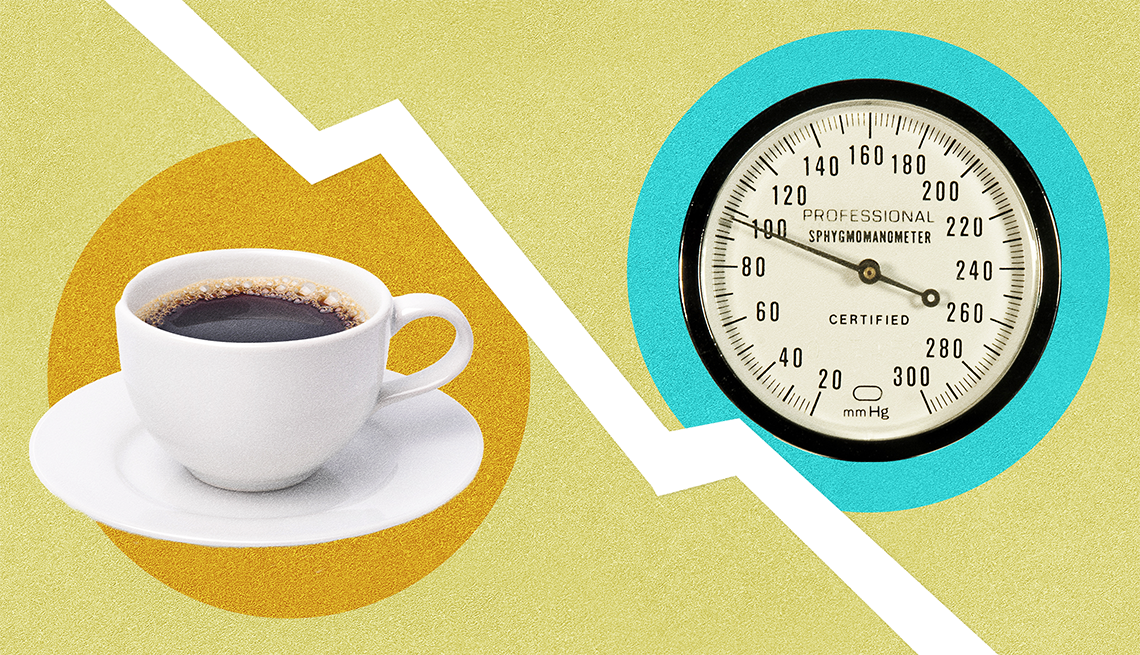AARP Hearing Center


High Blood Pressure Guide
- Symptoms, causes and tests
- Stages and types
- Treatment and prevention
- High blood pressure myths
- Alcohol and blood pressure
- Hypertension headache myths
- Smoking and high blood pressure
- Anxiety, stress and hypertension
- Is hypertension genetic?
- Medications that raise blood pressure
- Home blood pressure monitoring
- Surprising causes of hypertension
Nearly half of all U.S. adults and more than 70 percent of those over the age of 60 have high blood pressure, putting them at increased risk for heart disease and stroke. And a big problem is, many of them don’t even know they have it.
That’s because unlike a lot of health conditions, high blood pressure — anything above a reading of 130/80 millimeters of mercury (mm Hg) — doesn’t always have warning signs or symptoms. “They call it a silent killer for that reason,” says Luke Laffin, M.D., codirector of the Center for Blood Pressure Disorders at the Cleveland Clinic.
The idea that you’ll have symptoms of high blood pressure before you can do anything about it is a common myth, Laffin says. Here’s a look at eight more blood pressure myths, plus tips you can use to maintain a healthy blood pressure.
Myth 1: Some salts don’t raise blood pressure, like table salt
Salt can significantly raise your blood pressure. When you eat too much salt, your blood pressure can shoot up because your body retains extra fluid to dilute the sodium. All that fluid in your blood vessels increases the pressure and makes your heart work harder. Salt also shrinks your blood vessels over time, the American Heart Association says, causing your blood pressure to increase.
No surprise, then, that people with high blood pressure are often advised to eat a low-sodium diet. And many think swapping table salt for sea salt or Himalayan salt can help them lower their sodium intake. Not so fast. “It’s still sodium chloride, and it’s still an issue,” says Sandra Taler, M.D., a nephrologist and professor of medicine at the Mayo Clinic.
“When it comes to blood pressure, it all just comes down to milligrams of sodium more than anything else — and it’s all bad for raising blood pressure,” Laffin adds.
Federal dietary guidelines recommend no more than 2,300 milligrams a day of sodium — that’s about 1 teaspoon of table salt — but the American Heart Association suggests adults ideally should have no more than 1,500 mg a day.
Still, most Americans get way more, about 3,400 mg per day, according to the U.S. Centers for Disease Control and Prevention (CDC) and the American Heart Association. All that sodium isn’t coming from the saltshaker. In fact, the majority comes from processed and packaged foods, which is why you should read food labels for sodium content.
Taler says many people aren’t aware that something as ordinary as bread can be a major source of sodium. Pizza, sandwiches, soups and cheese are also high in sodium.




































































More From AARP
What Is the DASH Diet?
Research shows it can help to lower blood pressure, cholesterol6 Ways to Lower Your Blood Pressure Without Medication
Try these tactics to help fight hypertension and bring your numbers down
Try These Tips for Living a Healthier Life
Small changes can add up to big mental and physical results
Recommended for You